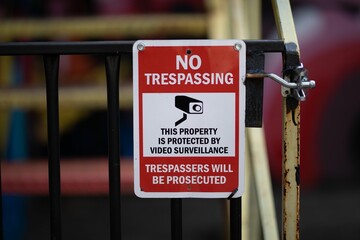
When you own property, especially a home, you want to feel like it is your safe space. You do not want intruders or unwelcome guests. That is why “private property” and “no trespassing” signs are often seen at property entrances. Entering another person’s property unlawfully can land you in serious trouble. If you were arrested for trespassing and are facing criminal charges, you need to acquire skilled representation. Reach out to an experienced Bergen County criminal defense attorney to begin forming a strong defense for your case.
Criminal trespassing is a type of property crime where a person enters another property that does not belong to them and that they do not have permission to enter. Criminal trespassing can be a fourth-degree indictable crime or a disorderly persons offense, depending on the specifics of the situation.
Although many post signs warning people to stay off of their property, it is not a requirement. Even if there was no written warning a person can still be found guilty of trespassing. There are three types of criminal trespassing, as explained below.
In short, yes you may go to jail for criminal trespassing in New Jersey. Without knowing the specific details of the circumstances there is no way to tell whether or not certain charges will result in jail time. However, there are standard consequences for each type of criminal trespassing, as outlined here.
Unlicensed entry is generally a disorderly persons offense and is punishable by fines of $1,000 and up to 6 months in jail. If it was committed in a research facility, school, or nuclear chemical plant it is a fourth-degree crime and punishable by fines of $10,000 and 18 months in prison.
Defiant trespassing is a petty disorderly offense and is punishable by fines of $500 and up to 30 days in jail.
Peering is a fourth-degree indictable crime and is punishable by fines of $10,000 and up to 18 months in prison.
© 2025 The Law Office of Kevin T. Conway. All rights reserved.